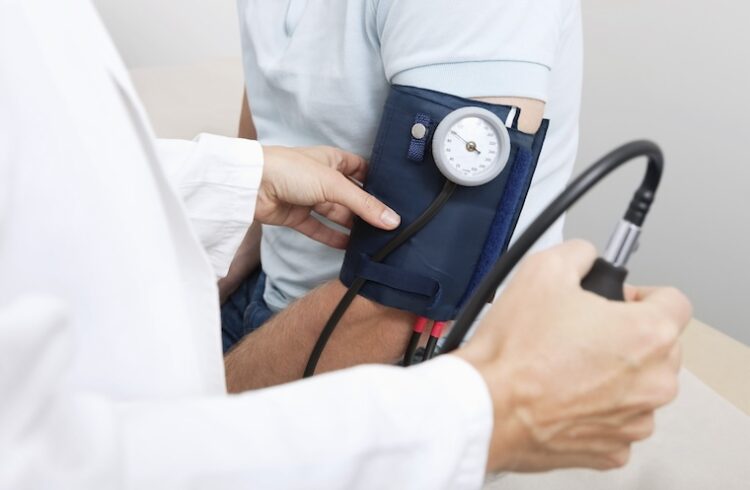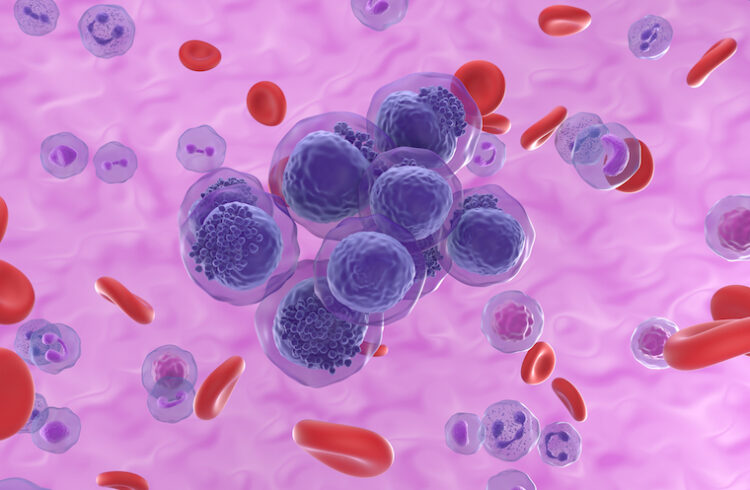
Courtney and Bill Wagner were newlyweds expecting their first child when their lives began veering in a direction they never anticipated. Courtney lost weight, became severely dehydrated and could no longer tolerate solid food. Physicians at two hospitals were alarmed by her deteriorating condition but unable to determine what was wrong.
The Wagners found renewed hope at the University of Virginia Health System. Within 24 hours of her first appointment, Courtney learned that she had a benign and rapidly growing desmoid tumor in her abdomen. It had engulfed her small intestine and caused it to fail. The diagnosis linked the tumor to an inherited condition called familial adenomatous polyposis, or FAP. This syndrome had necessitated the removal of Courtney’s large intestine when she was 17.
For sustenance, she was placed on total parenteral nutrition (TPN), a combination of fluids and essential nutrients administered intravenously. “Doctors told me I could only stay on TPN safely for six months. There was no hope for me beyond that,” says the 24-year-old Courtney.
At UVa, Courtney gave birth to her son, John William, six weeks early via caesarian-section and then began chemotherapy to shrink her tumor. Treatment was underway when a new complication arose: Courtney’s small intestine began to leak into the tumor. Since the leakage could eventually seep into her abdomen and cause a fatal infection, doctors decided a new course of action was needed.
Surgeons at UVa’s Charles O. Strickler Transplant Center determined that Courtney was a prime candidate for an intestinal transplant, which is a rare, yet effective procedure available at only a handful of U. S. medical centers. The small intestine, or bowel, is a muscular tube between the stomach and the large intestine. It helps the body stay healthy by digesting and absorbing the fluids and nutrients in food. When the small bowel is compromised, as in Courtney’s case, people suffer from severe dehydration and malnourishment.
“We had never performed an intestinal transplant before, yet had the infrastructure in place,” says Dr. Timothy Pruett, transplant center director and the surgeon who operated on Courtney. “UVa has been doing organ transplants for forty years and runs the busiest and most comprehensive program in the state.” UVa surgeons regularly perform kidney, pancreas, liver, lung, heart and islet cell transplants.
However, before offering to perform Courtney’s procedure at UVa, doctors referred her to one of the nation’s most experienced intestinal transplant providers, Nebraska Health System in Omaha.
“One of my UVa doctors, Dr. Timothy Schmitt, had performed intestinal transplants in Nebraska and trusted the skill and experience of the staff there,” says Courtney. A big drawback was that she would have to stay in Nebraska before and after her surgery. Since the waiting list was six-months long, Courtney was looking at a prolonged separation from her family and home.
“This was a really big decision. We did a lot of research before proceeding at UVa,” Courtney notes. “We searched the web, talked with doctors in Nebraska and looked into the transplant program at the University of Pittsburgh.”
Their decision made, Courtney and Bill met several times with Dr. Pruett and Dr. Schmitt. “They kept us up to date about how the clinic was preparing for my surgery. Dr. Pruett helped us get special permission from our insurance company, and Dr. Schmitt presented in-service training for nurses a week before my surgery,” Courtney says.
“We expected to wait for a donated organ for about a month and a half, but it happened a lot quicker,” she continues. “I was activated on the waiting list on a Monday and received my transplant that Friday.”
Courtney’s four-hour surgery occurred on April 28 and involved removing both the tumor and replacing her small bowel. “Everyone in the OR was excited to participate in this procedure. It was challenging, and we’re pleased with how it went. We anticipate that Courtney will do quite well,” Dr. Pruett reports. “For me, it’s an unbelievable privilege to help someone like Courtney. She has her whole life ahead of her and now can look forward to raising her son and to being with Bill.”
Today, Courtney is eating a normal diet, has discontinued TPN and is taking lower doses of her immunosuppressant medications. She recently attended her twin brother’s wedding in Tennessee, participated in a 5K walk/run with other UVa transplant recipients, and is trying to keep up with her one-year-old son.
Courtney and Bill speak in superlatives about their experience at UVa. “The care has been unbelievably good,” says Courtney. “We can’t thank the doctors, nurses and other staff members enough.”
The Wagners, who live in Monterey, Virginia, say they have been blessed with much support from their family and neighbors, too. “Our mothers have been taking turns spending a week with us taking care of the baby and Courtney while I work,” says Bill. “Many of our friends and neighbors have offered help and prayers. We are thankful for everything.”


